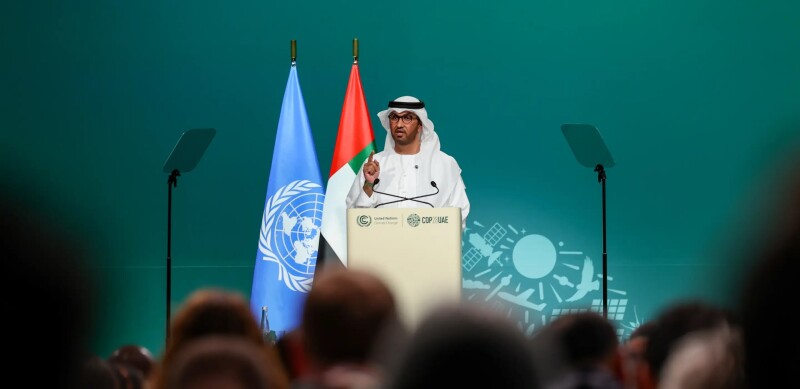In its first days, COP28 has mobilized over $57 billion to support priorities across the global climate agenda, which includes $30 billion in a new custom-tailored UAE catalytic fund that is 100% focused on solutions and bridging gaps to climate change.
In addition, $3.5 billion has been announced to replenish the Green Climate Fund, $2.7 billion has been pledged for health, $2.6 billion has been committed for food systems transformation, $2.6 billion has been pledged to protect nature, $467 million has been announced for urban climate action, and $1.2 billion has been committed for relief, recovery, and peace.
For energy, $2.5 billion was mobilized for renewables and $1.2 billion for methane emission reduction. In addition, $568 million was pledged to drive investments in clean energy manufacturing.
Eight new declarations have been announced that will help transform every major system of the global economy, including the first-ever declarations on food systems transformation. Major declarations were also made on renewable energy and efficiency, as well as initiatives to decarbonize heavy emitting.
According to summit organizers, the north star of the COP28 Chief Sultan Al Jaber is to keep 1.5°C within reach. Science says that to meet this goal, the world must get to net zero emissions by 2050 and reduce emissions by 43% by 2030.
Al Jaber found himself in a bit of controversy in the first days of COP28 after it was revealed that he told a gathering just days before the kickoff of the conference in Expo City, Dubai, that there is “no science” behind the claim that phasing out fossil fuel production and use is necessary to keeping global warming in check. Al Jaber is chief executive of the Abu Dhabi National Oil Company (ADNOC). He also serves as chairman and a founder of the renewable energy specialists Masdar and leads the UAE’s climate envoy.
Al Jaber held a news conference Monday defending his commitment to climate science, after an increasing number of scientists expressed concern regarding his early comments, which he said were misinterpreted.
Al Jaber made the remarks during the "She Changes Climate" panel event on 21 November, which came to light on Sunday, 3 December, in a story published by The Guardian.
Al Jaber said, “I accepted to come to this meeting to have a sober and mature conversation. I’m not in any way signing up to any discussion that is alarmist. There is no science out there, or no scenario out there, that says that the phaseout of fossil fuel is what’s going to achieve 1.5°C,” according to the Guardian story.
He added that a phaseout of fossil fuels would not allow sustainable development “unless you want to take the world back into caves.”
While there is little argument that oil and gas will play a diminished role in the global energy profile in the future, there remains disagreement regarding the timing and rate of removing fossil fuels from the energy mix. The strongest advocates of the transition away from oil and gas continue to call for a phaseout, while others promote a phase-down agenda.
According to CNN, Al Jaber told reporters Monday, “I have always been very clear on the fact that we are making sure that everything we do is centered around the science. I honestly think there is some confusion out there, and misrepresentation and misinterpretation,” he said, adding, “I have said over and over that the phase down and the phaseout of fossil fuel is inevitable. In fact, it is essential … it needs to be orderly, fair, just, and responsible.”
The COP28 summit began on 30 November and is scheduled to run through 12 December.
“The G7 countries voted that there should be a phasing out of unmitigated fossil fuel emissions, and what there is science for is keeping 1.5 degrees as your north star,” said Jim Skea, chair of the United Nations Intergovernmental Panel on Climate Change. “And every decision we make should be geared to: Does this advance the 1.5 degrees, or is it going to be more destructive and take us in the wrong direction?"


